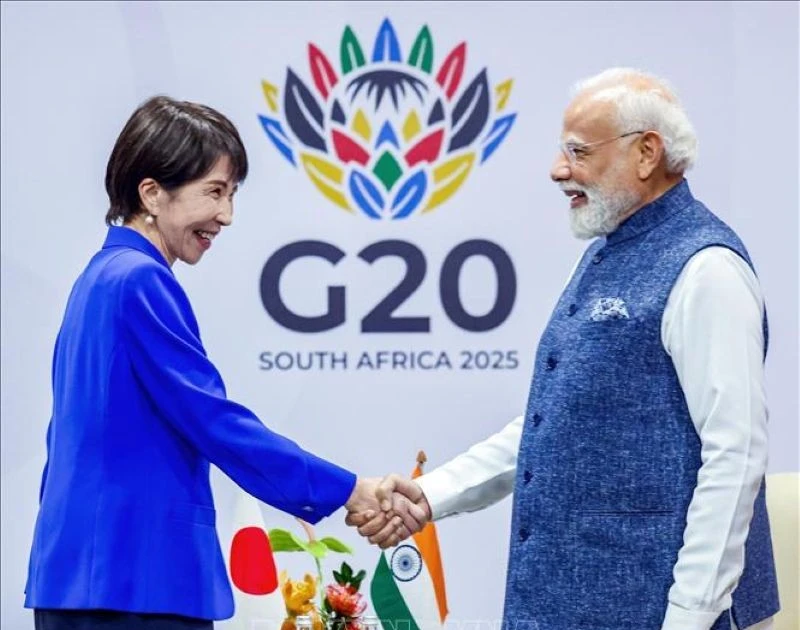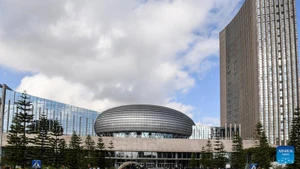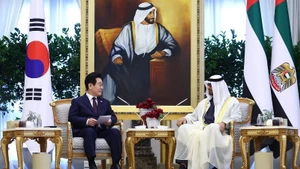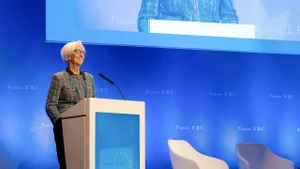The first in-person talks between Japanese Prime Minister Takaichi Sanae and her Indian counterpart Narendra Modi, held on the sidelines of the G20 Summit in South Africa, demonstrated the strong determination of both countries to enhance coordination and promote a shared vision of a free and open Indo-Pacific. The two sides confirmed their commitment to continued close collaboration, including within the Quadrilateral Security Dialogue (QUAD), which also includes the US and Australia.
Despite her tight schedule in Johannesburg, the Japanese leader prioritised a meeting with Prime Minister Modi. Expressing her desire to elevate bilateral ties to a deeper and more substantive level, Prime Minister Takaichi underscored her determination to pursue concrete outcomes in security, defence, economic cooperation and people-to-people exchanges. The two leaders also agreed to strengthen cooperation in key areas such as semiconductors and artificial intelligence (AI), innovation and growth, while advancing practical collaboration in economic security.
The in-person meeting in South Africa has injected fresh momentum into Japan–India ties, which have seen robust growth in recent years and are widely considered one of Asia’s most important strategic relationships. Despite geographical distance, Japan and India share many strategic interests. Both support a rules-based international order, freedom of navigation and maritime security—priorities that have become increasingly significant amid volatility in the Indo-Pacific. Tokyo and New Delhi’s emphasis on bolstering defence cooperation further lays a solid foundation for addressing emerging security challenges.
As geopolitical shifts accelerate, both Japan and India repeatedly stress that comprehensive cooperation in economics, defence, science-technology and infrastructure is key to sustaining peace, stability and long-term growth in the region. Highlighting economic and scientific-technological cooperation as the “backbone pillars” of their partnership, the two sides have continuously advanced numerous collaborative initiatives. Japanese projects in infrastructure, manufacturing, clean energy and high technology have played an important role in India’s economic development.
Challenges notwithstanding, observers believe the Japan–India partnership is progressing in a sustainable and substantive direction. It not only delivers economic, security and developmental benefits to both sides, but also contributes to shaping a more stable, fair and inclusive regional order.
Meanwhile, India remains a promising market for Japanese companies, especially in software and information technology. The combination of capital, technology and human resources from both countries not only drives bilateral growth but also strengthens regional value chains. Additionally, their active participation in multilateral mechanisms such as QUAD, the G20 and the Indo-Pacific cooperation frameworks provides both countries greater leverage to protect strategic interests and contribute to a stable regional environment.
Despite strong momentum, Japan–India relations still face certain challenges. Differences in economic development levels and national priorities occasionally lead to divergent policy approaches. Furthermore, the influence of other major powers in the region and the complex situation at geopolitical flashpoints require both Tokyo and New Delhi to remain flexible. India, notably, participates in both QUAD—a grouping focused on the Indo-Pacific—and BRICS, a platform of emerging powers advocating multipolarity. Balancing these frameworks, which differ in orientation, has long demonstrated New Delhi’s strategic finesse, yet rising external pressures now demand even greater assertiveness and diplomatic dexterity from India in its cooperation choices.
Challenges notwithstanding, observers believe the Japan–India partnership is progressing in a sustainable and substantive direction. It not only delivers economic, security and developmental benefits to both sides, but also contributes to shaping a more stable, fair and inclusive regional order. In an era of globalisation and strategic competition, Japan–India relations embody the spirit of multilateral cooperation, serving as a model for how major and emerging economies can work together to foster regional peace, stability and prosperity.
















